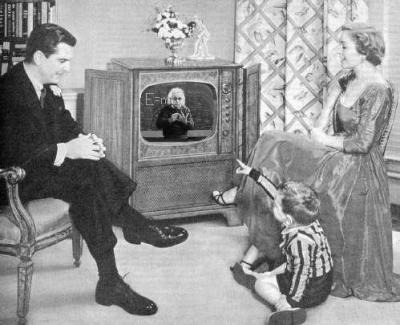
A Health Plan for Wal-Mart: Less Stinginess (NY Times)
So Wal-Mart's finally starting to play the health care game. According to the Times, the Big Blue Box is "offering better coverage to a greater number of workers." In light of Wal-Mart's slowed growth in North America, it makes sense to give in from time to time, and spend that political capital on appealing to consumers who might not usually shop at their stores.
How Wal-Mart sold the new policy to the Old Guard within its own Home Office was through logic and sound economic sense -- taking care of your workers increases productivity and shrinks turnover:
If workers “are healthy, they will do a better job at work, they’ll be more productive, they’ll be happier, nicer to our customers,” Ms. Dillman said, all of which results in less absenteeism and turnover, a longstanding problem in retailing.It might seem like a pretty big duh to most reasonable people, but you have to remember that Wal-Mart is steeped in a certain type of southern, small-town, social culture, where two-parent families are still the norm, and moms take part-time jobs at Wal-Mart while dads bring home the bacon (and the family's health insurance) through other full-time positions. It takes a lot of persistence to change the culture of Wal-Mart. And finally, that persistence seems to be paying off.
Wal-Mart’s insurance still pales in comparison to that offered by Costco, considered the gold standard in retailing because an employee pays just a few hundred dollars a year for generous individual coverage. But Wal-Mart is catching up to retailers like Home Depot and has in some ways surpassed Target, which makes part-timers wait two years to qualify for coverage.
And that's saying something. Target, with its upscale products and trendy store fronts, always seemed to dodge the bullet that other box stores like Wal-Mart and K-Mart couldn't. Expect Target to follow suite, otherwise they might see a bit more of the wrath that unions and worker's rights groups have been targeting towards Wal-Mart.
My favorite line from the article:
The New York Times disclosed a company memorandum proposing ways to reduce health care spending by....discouraging unhealthy people from working at Wal-Mart. One suggestion would have required cashiers to gather carts as exercise.
Yes! Now I realize why I had to fill in for the stock boys so often as a cashier! They were looking out for my health!
One reason for expanding health coverage to its workers that's only briefly alluded to in the article is that Wal-Mart might be interested in selling health care to its customers, too; and will likely penny pinch, scrimp and save in doing so. Remember this, if any one organization could single-handedly bring down the cost of health care for American citizens, it's Wal-Mart.
“If you really turned Wal-Mart loose and had Wal-Mart against the health care providers,” Mr. Nichols, the health economist, said, “it would be a fair fight.”
Watch out, Hillary and Obama. There's a new sheriff in town.







